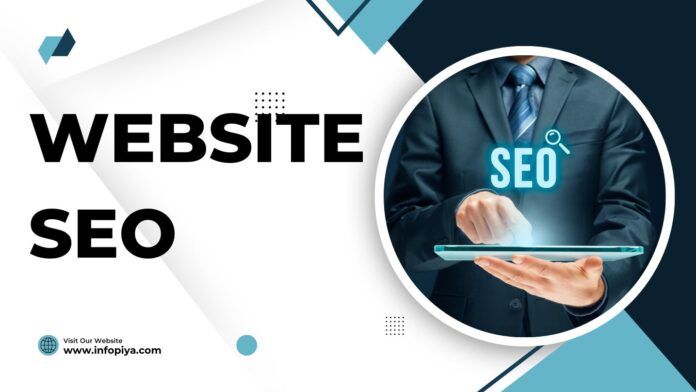In the vast digital landscape, your website is like a hidden gem waiting to be discovered. But how can you ensure that your target audience finds this treasure trove of information or products you’ve meticulously crafted? The answer lies in three simple letters: SEO.
Search Engine Optimization (SEO) is not just a buzzword; it’s the compass that guides potential customers to your digital doorstep. Whether you’re a small business owner trying to make your mark, a marketing professional looking to up your game, or an e-commerce entrepreneur dreaming of the next big sale, SEO is your ticket to online success.
The SEO Advantage: More Than Just Rankings
When we talk about SEO, many people immediately think of Google rankings. While that’s certainly a part of it, the benefits of SEO extend far beyond just appearing on the first page of search results. Let’s dive into the multifaceted advantages that make SEO an indispensable tool for any website.
1. Increased Organic Traffic: Your 24/7 Sales Team
Imagine having a tireless sales team that works round the clock, bringing potential customers to your website. That’s exactly what SEO does. By optimizing your website for relevant keywords, you’re essentially creating multiple entry points for users to find you.
Case Study: The Power of Organic TrafficA small local bakery in Portland, Oregon, implemented an SEO strategy focusing on long-tail keywords like “gluten-free cupcakes in Portland” and “vegan birthday cakes near me.” Within six months, their organic traffic increased by 150%, leading to a 75% boost in online orders.
2. Enhanced User Experience: Keep Them Coming Back
SEO isn’t just about pleasing search engines; it’s about creating a better experience for your users. A well-optimized website is typically faster, easier to navigate, and more user-friendly. This not only helps with your search rankings but also increases the likelihood of visitors staying longer, exploring more pages, and ultimately converting.
Pro Tip: Use tools like Google’s PageSpeed Insights to analyze and improve your website’s loading speed. A faster website not only ranks better but also keeps users happy!
3. Cost-Effectiveness: More Bang for Your Buck
In the world of digital marketing, SEO stands out as one of the most cost-effective strategies. Unlike paid advertising, where you’re constantly paying for each click, SEO is an investment that keeps on giving.
SEO vs. PPC: A Cost Comparison
- Average Cost Per Click (CPC) for Google Ads: $1-$2
- Average SEO Investment: $500-$5000/month
- Potential Organic Clicks from SEO: Unlimited
While the initial investment in SEO might seem higher, the long-term benefits far outweigh the costs. Once you’ve established a strong SEO foundation, you’ll continue to reap the rewards without ongoing per-click costs.
4. Brand Credibility and Trust: Your Digital Reputation
In today’s digital-first world, your website is often the first point of contact between your brand and potential customers. Appearing at the top of search results isn’t just about visibility; it’s a vote of confidence from search engines that translates into user trust.
Did You Know? 75% of users never scroll past the first page of search results. Being on that first page isn’t just good for traffic—it’s crucial for brand credibility.
5. Long-Term Strategy: The Gift That Keeps on Giving
Unlike other marketing strategies that may offer quick but short-lived results, SEO is a long-term investment. While it may take some time to see significant results, the effects of a well-executed SEO strategy can last for years.
The Compound Effect of SEO Think of SEO like compound interest for your website. Every optimized page, every quality backlink, and every positive user interaction builds upon each other, creating a snowball effect of increased visibility and traffic over time.
SEO by the Numbers: Statistics That Will Make You a Believer
If you’re still on the fence about the power of SEO, let these statistics do the talking:
- 93% of online experiences begin with a search engine (Search Engine Journal)
- Organic search drives 53% of website traffic (BrightEdge)
- 70-80% of users ignore paid ads and focus on organic results (Imforza)
- SEO leads have a 14.6% close rate, compared to 1.7% for outbound leads (Search Engine Journal)
- 88% of searches for local businesses on a mobile device either call or visit the business within 24 hours (Nectafy)
These numbers paint a clear picture: SEO isn’t just beneficial; it’s essential for any business looking to thrive in the digital age.
Implementing SEO: A Step-by-Step Guide
Now that we’ve established why SEO is crucial, let’s break down how you can start implementing it on your website:
- Conduct Keyword Research
- Use tools like Google Keyword Planner or SEMrush to identify relevant keywords for your business.
- Focus on long-tail keywords for less competition and higher conversion rates.
- Optimize On-Page Elements
- Craft compelling title tags and meta descriptions for each page.
- Use header tags (H1, H2, H3) to structure your content logically.
- Incorporate keywords naturally into your content, URLs, and image alt text.
- Create High-Quality, Relevant Content
- Develop a content strategy that addresses your audience’s needs and questions.
- Regularly publish blog posts, articles, and other valuable content.
- Use multimedia elements like images, videos, and infographics to enhance engagement.
- Improve Site Structure and Navigation
- Ensure your website has a clear, logical structure.
- Use internal linking to help users and search engines navigate your site.
- Create an XML sitemap and submit it to search engines.
- Optimize for Mobile
- Ensure your website is responsive and mobile-friendly.
- Use Google’s Mobile-Friendly Test tool to check your site’s mobile performance.
- Build Quality Backlinks
- Create shareable content that naturally attracts backlinks.
- Reach out to industry influencers and relevant websites for collaboration opportunities.
- Guest post on reputable sites in your niche.
- Monitor and Analyze Performance
- Set up Google Analytics and Google Search Console to track your progress.
- Regularly review your metrics and adjust your strategy accordingly.
Remember: SEO is not a one-time task but an ongoing process. Consistency and patience are key to seeing long-term results.
The Future of SEO: Trends to Watch
As we look ahead, several emerging trends are shaping the future of SEO:
- Voice Search Optimization With the rise of smart speakers and voice assistants, optimizing for voice search is becoming increasingly important. Focus on natural language and question-based queries.
- AI and Machine Learning Search engines are getting smarter. Expect algorithms to become even better at understanding user intent and delivering personalized results.
- Video SEO As video content continues to dominate, optimizing video for search engines will be crucial. This includes using descriptive titles, tags, and transcripts.
- Core Web Vitals Google’s emphasis on page experience metrics means that factors like loading speed, interactivity, and visual stability will play a bigger role in rankings.
- E-A-T (Expertise, Authoritativeness, Trustworthiness) Search engines are placing greater importance on content quality and credibility. Building your brand’s authority in your niche will be key.
Debunking Common SEO Misconceptions
As with any complex field, SEO has its fair share of myths and misconceptions. Let’s clear up some of the most common ones:
Myth 1: SEO is all about keywordsReality: While keywords are important, modern SEO is about much more. User experience, content quality, and technical factors all play crucial roles.
Myth 2: SEO results are immediateReality: SEO is a long-term strategy. It typically takes 4-6 months to start seeing significant results.
Myth 3: More links are always betterReality: Quality trumps quantity when it comes to backlinks. A few high-quality, relevant links are far more valuable than numerous low-quality ones.
Myth 4: SEO is a one-time taskReality: SEO requires ongoing effort. Search algorithms are constantly evolving, and your strategy needs to adapt accordingly.
Myth 5: Social media doesn’t affect SEOReality: While social signals aren’t a direct ranking factor, social media can indirectly boost your SEO by increasing brand visibility and driving traffic to your site.
The SEO Advantage: Your Path to Digital Success
In the ever-evolving digital landscape, SEO stands as a beacon of opportunity for businesses of all sizes. It’s not just about being found; it’s about being found by the right people at the right time. By implementing a robust SEO strategy, you’re not just improving your search rankings—you’re enhancing your entire online presence.
From increased organic traffic and improved user experience to cost-effective marketing and long-term growth, the benefits of SEO are clear and compelling. Whether you’re a small business owner looking to compete with larger corporations, a marketing professional aiming to deliver results, or an e-commerce entrepreneur dreaming of scaling your online store, SEO is your ticket to digital success.
Remember, SEO is not a sprint; it’s a marathon. It requires patience, consistency, and a willingness to adapt. But for those who commit to the journey, the rewards are boundless. Your website is a powerful asset—let SEO be the key that unlocks its full potential.
Ready to take your website to new heights? Start implementing these SEO strategies today and watch your digital presence soar. The future of your online success begins with SEO—are you ready to embrace it?


